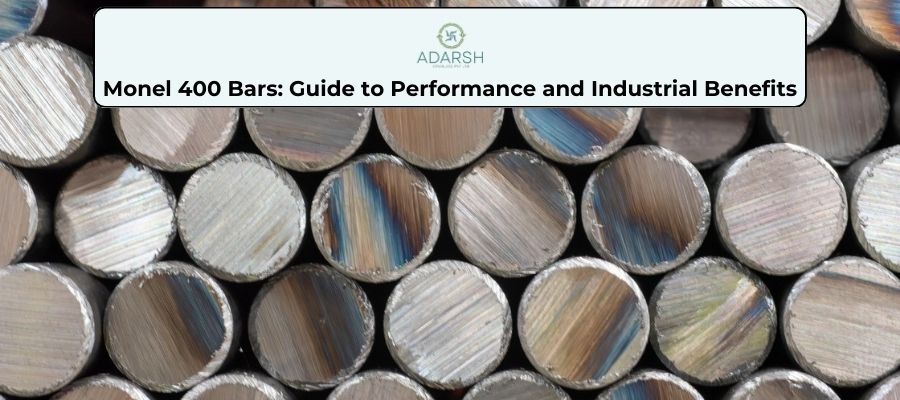In today’s industrial landscape, selecting the right material for fabrication and construction is more than a matter of durability it’s about corrosion resistance, cost-effectiveness, and long-term reliability. One material that has earned a strong reputation in these areas is the Alloy 20 Sheet. This nickel-iron-chromium-based alloy is specifically engineered to tackle harsh conditions, especially those involving sulfuric acid and other aggressive chemicals.
In this blog, we’ll take an in-depth look at what makes Alloy 20 Sheets stand out, covering everything from their composition and mechanical properties to their major uses across industries.
What is Alloy 20 Sheet?
Alloy 20, also known by its trade name Carpenter 20 or UNS N08020, is a superalloy primarily composed of nickel, iron, and chromium, with the addition of copper and molybdenum for enhanced corrosion resistance. Designed for maximum resistance to acid attack, particularly sulfuric acid, this alloy bridges the gap between stainless steels and high-nickel alloys.
When Alloy 20 is processed into sheet form, it becomes ideal for fabricating equipment and components used in chemical, food processing, and pharmaceutical industries.
Key Features of Alloy 20 Sheet
Here’s what makes Alloy 20 Sheet highly sought after:
1. Exceptional Corrosion Resistance
One of the most defining characteristics of Alloy 20 Sheet is its ability to resist corrosion in sulfuric acid and other acidic environments. The presence of copper significantly enhances its performance in such conditions.
2. Resistance to Chloride Stress Corrosion Cracking
Unlike conventional stainless steels that are vulnerable to chloride-induced cracking, Alloy 20 offers robust protection, making it suitable for marine and coastal applications.
3. Excellent Weldability and Fabrication
Despite being a superalloy, Alloy 20 Sheet is relatively easy to fabricate using standard industrial techniques. It supports welding, forming, and machining, reducing manufacturing time and cost.
4. Temperature Stability
It can withstand moderate to high temperatures without losing its mechanical properties, making it suitable for heat exchangers and pressure vessels.
Chemical Composition of Alloy 20 Sheet
- Nickel (Ni): 32–38%
- Chromium (Cr): 19–21%
- Iron (Fe): Balance
- Copper (Cu): 3–4%
- Molybdenum (Mo): 2–3%
- Carbon (C): Max 0.06%
- Manganese (Mn), Silicon (Si), Sulfur (S): Trace amounts
This specific chemical makeup enhances its corrosion resistance and overall strength.
Mechanical Properties
- Tensile Strength: 551 MPa min
- Yield Strength: 241 MPa min
- Elongation: 30% min
- Hardness: Rockwell B90 max
These properties make Alloy 20 Sheet not just corrosion-resistant but also structurally reliable under pressure.
Applications of Alloy 20 Sheet
Thanks to its versatile properties, Alloy 20 Sheet is widely used across numerous industries:
1. Chemical and Petrochemical Industry
Its resistance to sulfuric acid makes it ideal for reactors, tanks, and piping systems in chemical plants.
2. Food and Beverage Processing
Alloy 20 Sheet is non-toxic and resistant to acidic environments found in food production, such as vinegar and fruit juices.
3. Pharmaceutical Equipment
Its hygienic nature and corrosion resistance allow it to be used in processing and storage equipment.
4. Marine Applications
Being highly resistant to chloride ion attack, it’s suitable for components in coastal and offshore environments.
5. Pulp and Paper Industry
Used in digesters and bleach washers due to its durability in highly acidic and oxidizing conditions.
Why Choose Alloy 20 Sheet Over Other Alloys?
There are many stainless steels and superalloys in the market, but Alloy 20 Sheet stands apart for the following reasons:
- Better resistance to sulfuric acid than 316L or 317L stainless steels.
- Cost-effective alternative to higher-grade nickel alloys like Hastelloy.
- Improved longevity in acidic and chloride-rich environments.
- Ease of availability and wide range of sizes and thicknesses.
Maintenance and Fabrication Tips
To maximize the life and performance of Alloy 20 Sheets:
- Always use clean tools and avoid cross-contamination during fabrication.
- Post-fabrication annealing can relieve stress and enhance corrosion resistance.
- Regular inspections can detect signs of wear or pitting, especially in chemical processing environments.
Forms and Sizes Available
Alloy 20 Sheets are available in:
- Thickness: Ranges from 0.5 mm to 50 mm
- Widths: Up to 2000 mm
- Lengths: Custom cut or standard sizes like 2000 mm, 2500 mm, or coils
These sheets can also be customized for specific industrial requirements such as perforated, chequered, or mirror finish.
Final Thoughts
The Alloy 20 Sheet is more than just a corrosion-resistant material it’s a high-performance solution for industries where ordinary stainless steels would fail. From chemical processing plants to marine applications, its unique properties ensure durability, safety, and efficiency. Whether you’re constructing pressure vessels or designing food-grade containers, Alloy 20 delivers exceptional value.
As industries continue to face more aggressive environments and stricter safety standards, choosing the right material like Alloy 20 becomes crucial. With its outstanding performance and versatility, it’s no surprise that Alloy 20 Sheets are in increasing demand across global markets.







